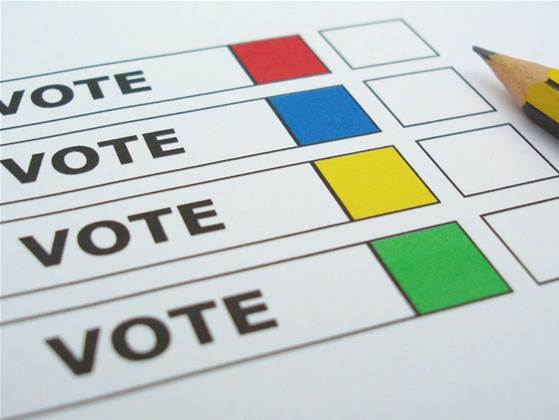The Anti-Counterfeiting Trade Agreement has taken several hits this week after three European parliamentary committees joined Dutch MPs in rejecting the controversial treaty.

All three committees advising Europe's International Trade Committee – which will adopt a final position by June 21, when it is passed to Parliament for consent – did not approve of the treaty.
The Trade Committee may still choose to overrule the advice of the three committees when it adopts its own final position on the treaty.
However, the position taken by the three committees was seen by some as a "strong signal" that Europe would ultimately vote down the ACTA proposal.
"Together the votes are a protest against an unnecessarily imbalanced and ill-considered treaty," Open Rights Group spokesman Peter Bradwell said.
"There is still a long way to go before ACTA is finally defeated. The final vote in the European Parliament is in a month's time.
"We need to continue to convince more MEPs [Members of the European Parliament] that ACTA puts our privacy and freedom of expression at risk and is an affront to democratic principles."
Of the three parliamentary committees to reject ACTA:
- the Civil Liberties Committee raised privacy and ambiguity concerns with ACTA. It voted against ACTA 36 to one, with 21 abstentions;
- the Industry Committee was critical of the lack of balance between property rights, personal data and internet freedoms, and warned that adopting ACTA "could create legal uncertainty for European firms". It rejected the treaty by 31 votes to 25.
- the Legal Affairs Committee vote went down to the wire – 12 to 10, with two abstentions.
The committees' rejections follow protests across Europe against ACTA in February of this year. More than 25,000 demonstrators braved freezing temperatures in Germany, with others holding similar rallies in other European capitals.
More protests are set for June 9, weeks out from the European Parliament's final vote.
"Whilst many have been saying that ACTA is now dead in the water, there is a very real danger that rather than dropping it outright, they will ask for it to be 'reconsidered' or amended," Pirate Party UK secretary Harley Faggetter said.
"We need to remind MEPs what their constituents expect from them before they sit down in Parliament to discuss ACTA."
If Europe ultimately rejects the ACTA, it will be scrapped, according to a report by BBC News.
MPs from the Netherlands did not wait for the European vote before passing motions not to sign or ratify ACTA earlier this week, according to a Dutch internet freedom blog.
Australia became a signatory to the ACTA treaty at a meeting in Tokyo late last year. The Department of Foreign Affairs and Trade (DFAT) has repeatedly sought to reassure Australians that the treaty won't impinge internet freedoms.



_(33).jpg&h=140&w=231&c=1&s=0)







 iTnews Benchmark Awards 2026
iTnews Benchmark Awards 2026
 iTnews Executive Retreat - Security Leaders Edition
iTnews Executive Retreat - Security Leaders Edition
 iTnews Cloud Covered Breakfast Summit
iTnews Cloud Covered Breakfast Summit
 The 2026 iAwards
The 2026 iAwards












_(1).jpg&h=140&w=231&c=1&s=0)



